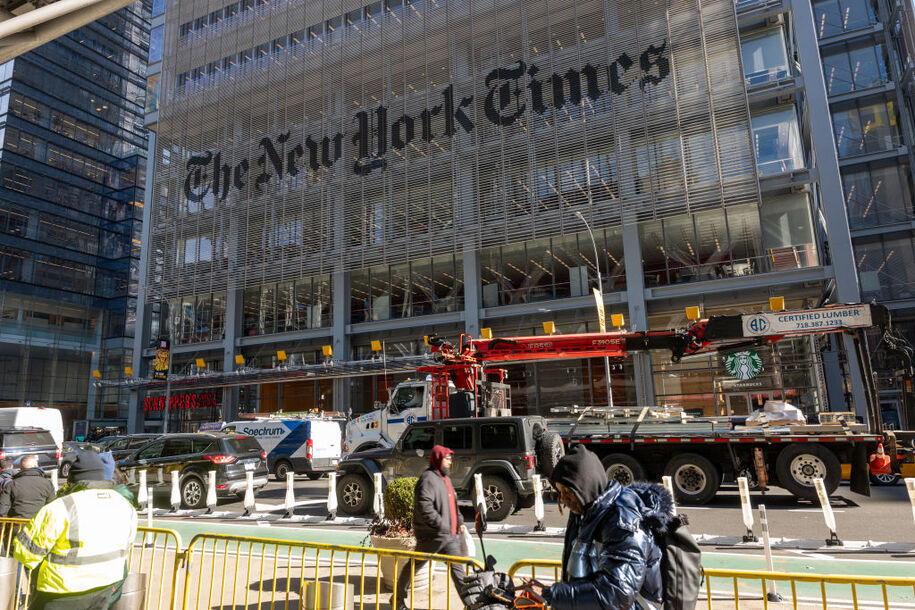
The New York Times released the results of a new poll on Wednesday that shows Donald Trump up by 6 percentage points nationally among registered voters and 3 points ahead with likely voters. The focus of the accompanying article is that, despite Trump’s 34 felony convictions, Republicans are more solidly aligned behind him than Democrats are behind President Joe Biden.
The poll, which was conducted for the Times by Siena College, represents a shift toward Trump since the previous survey, in April, which showed Trump ahead by a single point among likely voters. And it seems especially bad news that Trump would enjoy such unblinking support despite that a Reuters/Ipsos poll right after his conviction showed Republicans and independents less likely to support him.
The new poll is getting heavy coverage in political media and generating considerable hand-wringing about the message it sends on the eve of the first presidential debate. But only after wading through seven paragraphs of how solid Trump’s support is among Republicans, and how much Democrats are waffling, does the Times give an important asterisk: So far, this poll is an outlier.
The Times considers its poll an outlier when compared to its own national polling average, which gives Trump a narrow 1-point lead. “It is difficult to determine whether such results, known in the polling industry as an outlier, reflect a change in public opinion not yet seen by other pollsters or are produced by random error,” the Times says in the seventh paragraph.
But there’s something even more interesting in the following paragraph.
In this case, the size of Mr. Trump’s lead in the poll may be related to the fact that Republicans were significantly likelier to answer their phones and take the survey than Democrats or independents, a new development in Times/Siena polling this cycle. One potential explanation
This follows a previous observation that among those who said their vote would be affected by Trump’s conviction, “Republicans said the outcome would make them likelier to support him than oppose him by a roughly 4-to-1 margin.” It’s pretty safe to say that if your candidate is convicted of 34 felonies, and if that makes you more likely to vote for them, then your vote was never up for grabs in the first place. The people who count are those other guys, the Republicans whose shaken support shows that they’re not already wholly committed to Trump no matter what he does.
When it comes to an actual vote, those Republicans who were already going to vote for Trump and who now say they are even more likely to vote for him following his conviction don’t matter. They can only vote for him once, no matter how angry they become. But when it comes to a poll, if that anger makes them more likely to pick up the phone and punch out the buttons to show their hatred for Biden, it can definitely sway the results.
None of this is to suggest that all the polls are busted, or that Biden enjoys some secret pool of voters who aren’t showing up in the numbers. This election is close. Every vote, every dollar, and every minute spent working for the campaign is going to count.
The new Times/Siena poll may have been moved by Trump enthusiasts who had the time and motivation to stay on the phone and vent their anger. But not every poll shows Trump making a gain post-conviction, and there are absolutely no polls that make it seem like this election is in the bag for either candidate. Far from it. And the potential problems that the Times is acknowledging in this poll—especially the difficulty of getting a wide variety of people to answer the phone and take a poll—is something that has plagued many pollsters over multiple election cycles.
The Times article centers on the idea that Republicans are more unified than Democrats. You have 131 days to go out, fight, and prove that wrong.